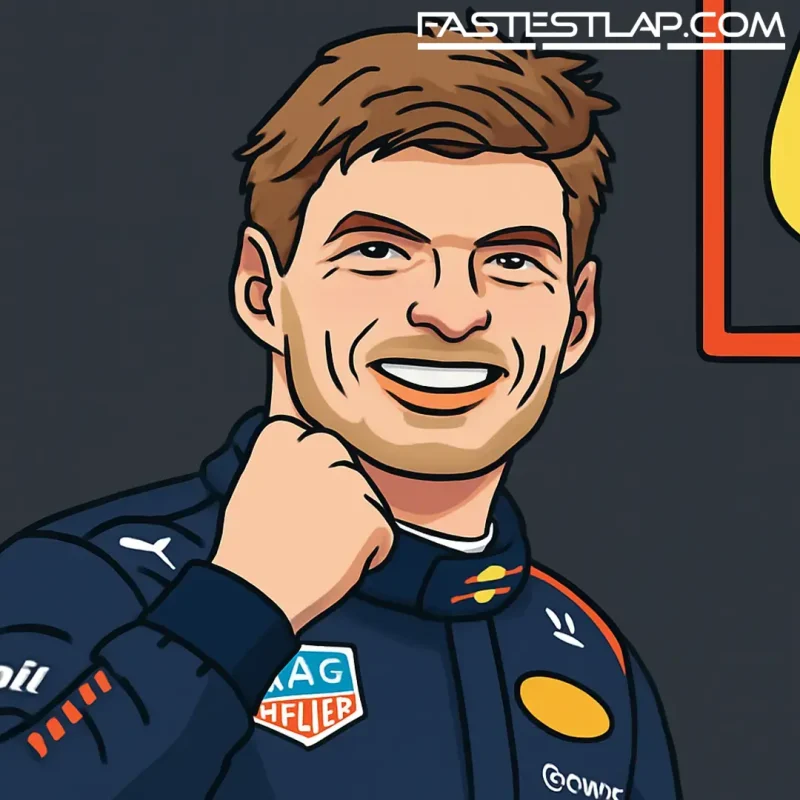Ralf Schumacher eats his words as Verstappen flips the Baku script — and the title narrative gets a nudge
Max Verstappen had every reason to grin in parc fermé. The Red Bull driver didn’t just win in Baku — he dismantled the doubts that have shadowed him around Azerbaijan’s stop-start streets and forced one high-profile skeptic to perform a swift U-turn.
Ralf Schumacher, who’d questioned Verstappen’s chances before the weekend, held his hands up afterward. “From my perspective, that’s the biggest surprise,” he admitted on the Backstage Boxengasse podcast. “What do I care what I said earlier? Of course I have to take that back!” He wasn’t alone. Heading into the round, Verstappen’s Baku record looked ordinary by his standards, especially compared to Sergio Perez’s knack for the place. Combine that with an RB21 that’s been temperamental for stretches of the season, and it was reasonable to wonder if pole would translate to anything more than a headache.
It did. Comfortably.
The reigning champion converted back-to-back poles — Monza and now Azerbaijan — into back-to-back wins, controlling both races from the first lap to the flag while McLaren’s Lando Norris and Oscar Piastri never quite landed a punch. If Monza felt like Red Bull finding its feet again, Baku looked like them planting both firmly on the neck of the field. For McLaren, this was the wobble. On a weekend where the orange cars had few answers, Red Bull executed cleanly, and Verstappen ran the kind of measured, metronomic stint sequence that breaks rivals long before the pit stops do.
Schumacher called the performance “grandiose” and praised the team’s direction. That matches the paddock read since Monza, where a floor update seems to have snapped Red Bull out of their mid-season funk. The gains aren’t just visible on the stopwatch; they’ve shifted the tone. As recently as midsummer, the gap to championship leader Piastri looked hefty. Now, Verstappen’s sliced it from 104 points to 69. Still a big hill, yes. But this is Verstappen: he sprints up hills for sport.
None of this rewrites the season’s larger arc overnight. McLaren set the 2025 pace early and often, and there’s no guarantee Red Bull’s rebound holds on every layout left on the calendar. It’s also true that Verstappen had rarely looked as at-ease in Baku as Perez, who once made this place look like a personal playground. That’s why this one lands with extra weight. When a driver wins where he’s supposedly vulnerable, it tends to echo.
Crucially, it didn’t happen by accident. The RB21’s balance — tricky earlier in the year — looked planted through the castle section and calm in the braking zones. Strategy was tidy, pit work sharp. Even Schumacher, who’d highlighted where Verstappen had faltered here before, pointed out the transformation. “Red Bull also did an excellent job,” he said. “If you take the numbers as a yardstick, Max, even compared to the rest of the year, did a great race.”
There’s a subtext worth noting: Red Bull’s focus inevitably tilts toward 2026 and F1’s next ruleset, but momentum today makes life a lot happier tomorrow. Two straight wins, two straight poles, fewer headaches in the garage — that’s the kind of platform that settles a team, steadies development paths, and lets the driver lean in.
Is the title back on? That’s still a stretch. Piastri’s points cushion is exactly that — a cushion — and Norris remains a week-in, week-out threat. But what looked like a one-team procession a month ago is now a live contest again. Verstappen’s made sure of it, and he’s done it somewhere he wasn’t supposed to.
Schumacher’s mea culpa might be the neatest summary of the mood. You can argue about trends and trajectories all you like; Verstappen’s form has a habit of ending arguments. In Baku, he didn’t just win. He changed the conversation.




